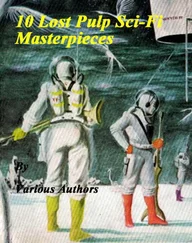W. Maugham - Selected Masterpieces
Здесь есть возможность читать онлайн «W. Maugham - Selected Masterpieces» весь текст электронной книги совершенно бесплатно (целиком полную версию без сокращений). В некоторых случаях можно слушать аудио, скачать через торрент в формате fb2 и присутствует краткое содержание. Жанр: Классическая проза, на английском языке. Описание произведения, (предисловие) а так же отзывы посетителей доступны на портале библиотеки ЛибКат.
- Название:Selected Masterpieces
- Автор:
- Жанр:
- Год:неизвестен
- ISBN:нет данных
- Рейтинг книги:5 / 5. Голосов: 1
-
Избранное:Добавить в избранное
- Отзывы:
-
Ваша оценка:
- 100
- 1
- 2
- 3
- 4
- 5
Selected Masterpieces: краткое содержание, описание и аннотация
Предлагаем к чтению аннотацию, описание, краткое содержание или предисловие (зависит от того, что написал сам автор книги «Selected Masterpieces»). Если вы не нашли необходимую информацию о книге — напишите в комментариях, мы постараемся отыскать её.
Selected Masterpieces — читать онлайн бесплатно полную книгу (весь текст) целиком
Ниже представлен текст книги, разбитый по страницам. Система сохранения места последней прочитанной страницы, позволяет с удобством читать онлайн бесплатно книгу «Selected Masterpieces», без необходимости каждый раз заново искать на чём Вы остановились. Поставьте закладку, и сможете в любой момент перейти на страницу, на которой закончили чтение.
Интервал:
Закладка:
"What will you have?" he asked me.
I looked at him doubtfully. Prohibition was in force and to all appearances the ship was bone-dry. When I am not thirsty I do not know which I dislike more, ginger-ale or lemon-squash. But Mr Kelada flashed an oriental smile at me.
"Whisky and soda or a dry Martini, you have only to say the word."
From each of his hip-pockets he fished a flask and laid them on the table before me. I chose the Martini, and calling the steward he ordered a tumbler of ice and a couple of glasses.
"A very good cocktail," I said.
"Well, there are plenty more where that came from, and if you've got any friends on board, you tell them you've got a pal who's got all the liquor in the world."
Mr Kelada was chatty. He talked of New York and of San Francisco. He discussed plays, pictures, and politics. He was patriotic. The Union Jack is an impressive piece of drapery, but when it is flourished by a gendeman from Alexandria or Beirut, I cannot but feel that it loses somewhat in dignity. Mr Kelada was familiar. I do not wish to put on airs, but I cannot help feeling that it is seemly in a total stranger to put mister before my name when he addresses me. Mr Kelada, doubtless to set me at my ease, used no such formality. I did not like Mr Kelada. I had put aside the cards when he sat down, but now, thinking that for this first occasion our conversation had lasted long enough, I went on with my game.
"The three on the four," said Mr Kelada.
There is nothing more exasperating when you are playing patience than to be told where to put the card you have turned up before you have had a chance to look for yourself.
"It's coming out, it's coming out," he cried. "The ten on the knave."
With rage and hatred in my heart I finished. Then he seized the pack.
"Do you like card tricks?"
"No, I hate card tricks," I answered.
"Well, I'll just show you this one."
He showed me three. Then I said I would go down to the dining-room and get my seat at table.
"Oh, that's all right," he said. "I've already taken a seat for you. I thought that as we were in the same state-room we might just as well sit at the same table."
I did not like Mr Kelada.
I not only shared a cabin with him and ate three meals a day at the same table, but I could not walk round the deck without his joining me. It was impossible to snub him. It never occurred to him that he was not wanted. He was certain that you were as glad to see him as he was to see you. In your own house you might have kicked him downstairs and slammed the door in his face without the suspicion dawning on him that he was not a welcome visitor. He was a good mixer, and in three days knew everyone on board. He ran everything. He managed the sweeps, conducted the auctions, collected money for prizes at the sports, got up quoit and golf matches, organized the concert, and arranged the fancy-dress ball. He was everywhere and always. He was certainly the best-hated man in the ship. We called him Mr Know-All, even to his face. He took it as a compliment. But it was at meal times that he was most intolerable. For the better part of an hour then he had us at his mercy. He was hearty, jovial, loquacious and argumentative. He knew everything better than anybody else, and it was an affront to his overweening vanity that you should disagree with him. He would not drop a subject, however unimportant, till he had brought you round to his way of thinking. The possibility that he could be mistaken never occurred to him. He was the chap who knew. We sat at the doctor's table. Mr Kelada would certainly have had it all his own way, for the doctor was lazy and I was frigidly indifferent, except for a man called Ramsay who sat there also. He was as dogmatic as Mr Kelada and resented bitterly the Levantine's cocksureness. The discussions they had were acrimonious and interminable.
Ramsay was in the American Consular Service, and was stationed at Kobe. He was a great heavy fellow from the Middle West, with loose fat under a tight skin, and he bulged out of his ready-made clothes. He was on his way back to resume his post, having been on a flying visit to New York to fetch his wife, who had been spending a year at home. Mrs Ramsay was a very pretty little thing, with pleasant manners and a sense of humour. The Consular Service is ill paid, and she was dressed always very simply; but she knew how to wear her clothes. She achieved an effect of quiet distinction. I should not have paid any particular attention to her but that she possessed a quality that may be common enough in women, but nowadays is not obvious in their demeanour. You could not look at her without being struck by her modesty. It shone in her like a flower on a coat.
One evening at dinner the conversation by chance drifted to the subject of pearls. There had been in the papers a good deal of talk about the culture pearls which the cunningjapa-nese were making, and the doctor remarked that they must inevitably diminish the value of real ones. They were very good already; they would soon be perfect. Mr Kelada, as was his habit, rushed the new topic. He told us all that was to be known about pearls. I do not believe Ramsay knew anything about them at all, but he could not resist the opportunity to have a fling at the Levantine, and in five minutes we were in the middle of a heated argument. I had seen Mr Kelada vehement and voluble before, but never so voluble and vehement as now. At last something that Ramsay said stung him, for he thumped the table and shouted:
"Well, I ought to know what I am talking about. I'm going to Japan just to look into this Japanese pearl business. I'm in the trade and there's not a man in it who won't tell you that what I say about pearls goes. I know all the best pearls in the world, and what I don't know about pearls isn't worth knowing."
Here was news for us, for Mr Kelada, with all his loquacity, had never told anyone what his business was. We only knew vaguely that he was going to Japan on some commercial errand. He looked round the table triumphandy.
"They'll never be able to get a culture pearl that an expert like me can't tell with half an eye." He pointed to a chain that Mrs Ramsay wore. "You take my word for it, Mrs Ramsay, that chain you're wearing will never be worth a cent less than it is now."
Mrs Ramsay in her modest way flushed a little and slipped the chain inside her dress. Ramsay leaned forward. He gave us all a look and a smile flickered in his eyes.
"That's a pretty chain of Mrs Ramsay's, isn't it?"
"I noticed it at once," answered Mr Kelada. "Gee, I said to myself, those are pearls all right."
"I didn't buy it myself, of course. I'd be interested to know how much you think it cost."
"Oh, in the trade somewhere round fifteen thousand dollars. But if it was bought on Fifth Avenue I shouldn't be surprised to hear that anything up to thirty thousand was paid for it."
Ramsay smiled grimly.
"You'll be surprised to hear that Mrs Ramsay bought that string at a department store the day before we left New York, for eighteen dollars."
Mr Kelada flushed.
"Rot. It's not only real, but it's as fine a string for its size as I've ever seen."
"Will you bet on it? I'll bet you a hundred dollars it's imitation.".
"Done."
"Oh, Elmer, you can't bet on a certainty," said Mrs Ramsay. She had a little smile on her lips and her tone was gendy deprecating.
"Can't I? If I get a chance of easy money like that I should be all sorts of a fool not to take it."
"But how can it be proved?" she continued. "It's only my word against Mr Kelada's."
"Let me look at the chain, and if it's imitation I'll tell you quickly enough. I can afford to lose a hundred dollars," said Mr Kelada.
"Take it off, dear. Let the gendeman look at it as much as he wants."
Читать дальшеИнтервал:
Закладка:
Похожие книги на «Selected Masterpieces»
Представляем Вашему вниманию похожие книги на «Selected Masterpieces» списком для выбора. Мы отобрали схожую по названию и смыслу литературу в надежде предоставить читателям больше вариантов отыскать новые, интересные, ещё непрочитанные произведения.
Обсуждение, отзывы о книге «Selected Masterpieces» и просто собственные мнения читателей. Оставьте ваши комментарии, напишите, что Вы думаете о произведении, его смысле или главных героях. Укажите что конкретно понравилось, а что нет, и почему Вы так считаете.












